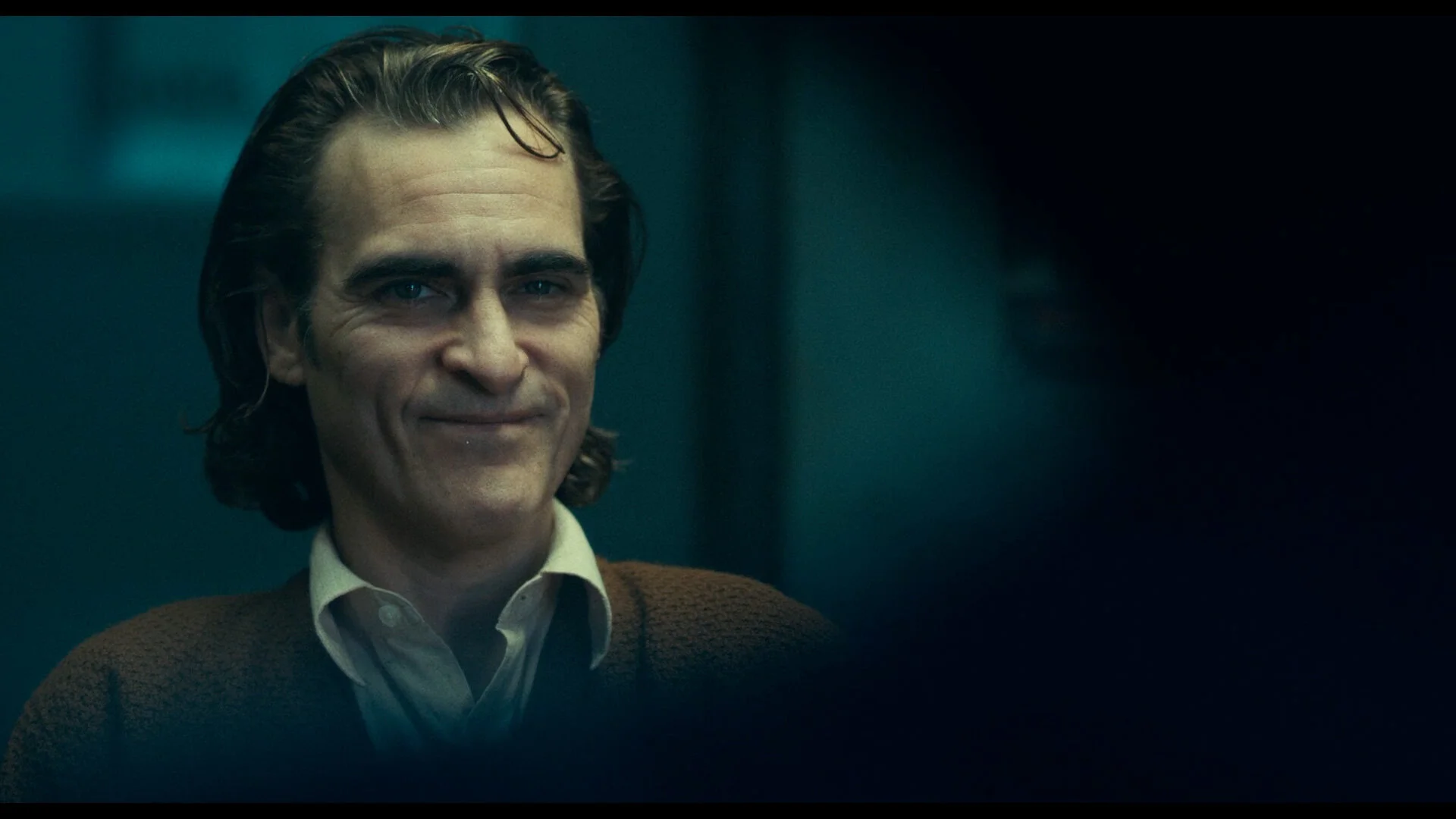joker
review by connor howlett
“A comic book movie in competition at a film festival? Winning the Golden Lion? Che cazzo!”
The atmosphere surrounding Joker at Venice was intense; both press screenings were full, in cinemas amounting to a total of about 3400 seats, and not even all the critics that tried to attend were admitted. I queued from 5.45am to secure my seat for a screening at 10.30am, after witnessing the madness this film had appeared to transmit from its protagonist to its audience.
Joaquin Phoenix gives a knockout performance as Arthur Fleck in Joker.
Joker’s protagonist is Arthur Fleck (a devastating and disturbing Joaquin Phoenix). He is a vulnerable man, haunted by the neglect and indifference of the society around him. Due to a childhood injury, he has uncontrollable bouts of manic laughter in inappropriate moments that violate his surrounding space, scaring people and alienating him from human connection. It may appear all too easy to dismiss Fleck as an “incel” type - a lonely man taking out his rage and desperation on a toxic society that has given him nothing but animosity - yet, the character of the Joker is far more nuanced than that. Yes, he is clearly a victim of a toxic society, but this is also the same divided, sadistic society that then celebrates the chaos he begins to create, much like the way our own society seems to celebrate crass fear-mongering and hatred in the polls over compassion and sincerity.
Phoenix’s performance is masterful. He lost a lot of weight for the role, leaving behind a body that seems hollowed out from the inside, protruding ribs and shoulder blades deforming an otherwise very recognisable Hollywood star. His weight loss is not the only way he loses himself in the role; Fleck’s movements, clumsy and clownish, are meticulously choreographed, highlighting the vulnerability of the character, but never abnegating the potential danger the neglect of such vulnerability can create.
“It may appear all too easy to dismiss Fleck as an “incel” type....”
Todd Phillips’ film consistently wrong-foots us about Fleck, testing his reliability as a narrator, which, being a character that will of course go on to torment Batman, seems appropriate. Whenever the film risks sympathising too much with Fleck, we are shown the perversity of his worldview through visual contradiction or performance. One such scene shows Fleck at a comedy club, watching a stand-up set and laughing at all the wrong bits: the filler that connects the punchlines is what tickles his funny bone, separating himself from every other audience member, and showing us that this is a person who has no concept of what is socially acceptable. This is not a character we can unflinchingly root for.
Phillips’ direction has clearly been inspired by the character studies of Scorsese’s back-catalogue, its palette evocative of Mean Streets and The King of Comedy, and even boasting Robert DeNiro’s long-awaited return to a serious role that isn’t a perverted grandpa. Fleck’s grimy underworld of Gotham also owes a lot to that of Taxi Driver, sharing a lonely protagonist about to snap in a city gone mad.
Joker is not a perfect film; a certain alleyway scene definitely takes you out of an otherwise stand-alone narrative, but I don’t think I’ve ever seen such an important and relevant cautionary film about this type of character in the cinema before. It is undoubtedly a masterpiece.
Joker opens to Irish audiences on October 6th.

